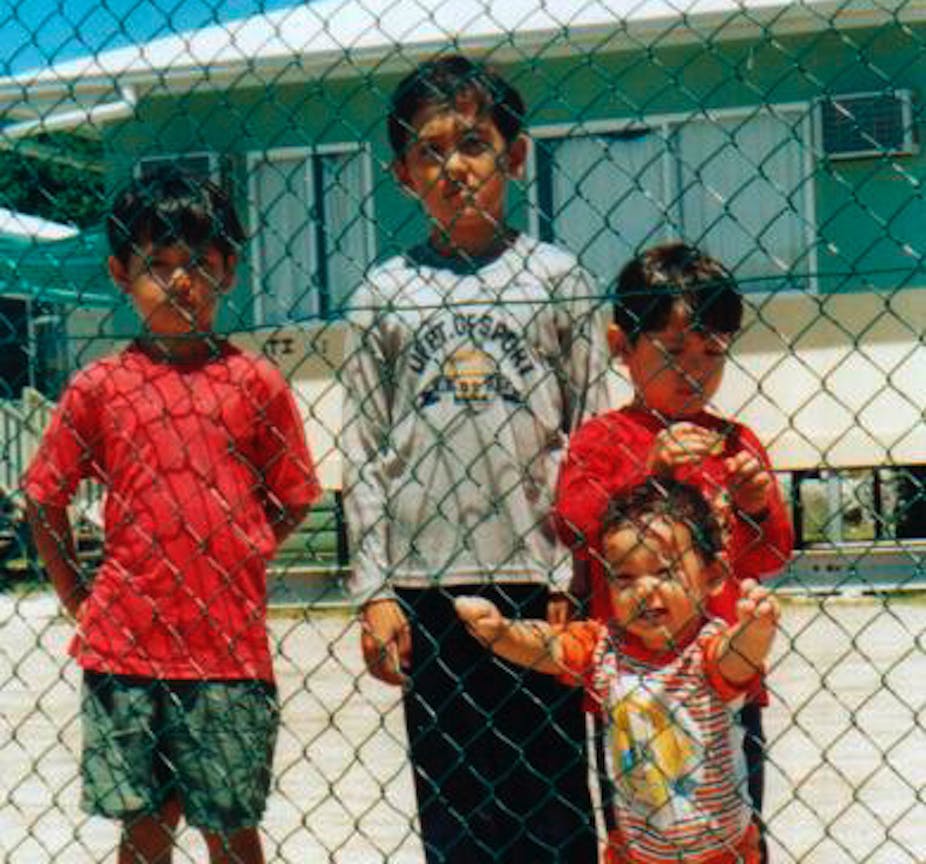“The truth about the Pacific Solution is that 70%, thereabouts, of those people sent by Mr Howard to Nauru and elsewhere as part of the Pacific Solution, used it as a [way] station and within a couple of years were in Australia anyway.” - Prime Minister Kevin Rudd, leaders’ debate, 11 August.
Prime Minister John Howard introduced the so-called Pacific Solution in 2001. It comprised of a series of policies, but the key one was that asylum seekers who arrived by boat had their claims for refugee status processed in offshore detention centres on Manus Island in Papua New Guinea and on Nauru. Resettlement in Australia was not guaranteed, even if a person’s refugee status was confirmed.
When the Rudd government in 2008 ended the Pacific Solution, 1615 asylum seekers had been intercepted at sea and transferred by Australian authorities to Nauru and Manus according to a parliamentary library report. Of the 1637 people in total who were processed on Manus and Nauru (I have included a further 22 children who were born on Manus or Nauru during the policy), 1075 were found to be refugees and resettled. There were 78 people found not to be refugees, but still resettled. One person died and 483 people voluntarily returned to their home countries.
From 2001-2008, the duration of the Pacific Solution, of the 1153 resettled from Manus and Nauru, 705 went to Australia, 401 to New Zealand, 21 to Sweden, 16 to Canada, six to Denmark and four to Norway.
If we take Rudd’s statement exactly as he said it - of the total people sent to Nauru and elsewhere, 70% were taken by Australia – it is not true. The total refugees resettled in Australia from the total transferred to Manus and Nauru is 43%. Of the total, 29.5% choose to return home and 27.5% refugees were resettled in countries other than Australia.
Opposition leader Tony Abbott was more accurate when he interjected that Rudd’s claim was “not true”, and said that “30% went home, 30% went to a country other than Australia and, yes, 40% did come to Australia but the Prime Minister owes it to the Australian people to get his facts right”.
If the argument had been whether the Pacific Solution led to Australia not resettling the majority of those found to be refugees, Rudd would have been closer to the mark. The 1153 people found to be refugees required resettlement as they could not return home, nor at the time could they stay in Manus or Nauru. Australia took in just over 61% of these people.
Verdict
Prime Minister Kevin Rudd was incorrect to say 70% of asylum seekers under the Pacific Solutions were resettled in Australia. The correct figure is 43%, which is close to Opposition leader Tony Abbott’s estimate.
Review
On this issue, the numbers are clear and uncontroversial. Figures are collected by the UNHCR and the Department of Immigration and Citizenship. The Fact Check seems to have correctly interpreted the data to arrive at the percentages of people settled in Australia from Nauru and Manus Island.
Although only 43% of refugees were resettled in Australia, the other 27.5% were resettled in New Zealand and other countries after negotiations with Australia, largely to maintain the story that resettlement in Australia was not an inevitable outcome. The difference between the Rudd and Abbott figure, then, simply provides a different impression of the willingness of other countries to share the resettlement burden.

